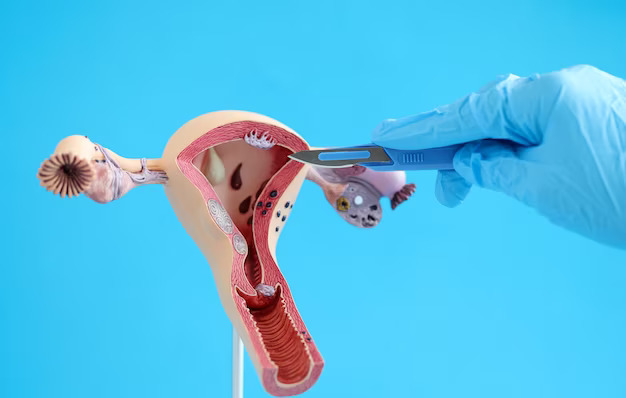Treatment for Blocked Fallopian Tubes

What is Tubal Blockage?
Tubal blockage refers to a condition in which one or both of the fallopian tubes, which are the tubes that connect the ovaries to the uterus, become partially or completely obstructed. This can prevent an egg from reaching the uterus or prevent sperm from reaching the egg, resulting in infertility.
Tubal blockage can be caused by a variety of factors, including infections (such as pelvic inflammatory disease), endometriosis, scar tissue from surgery, or previous ectopic pregnancies. It can be diagnosed through imaging tests such as hysterosalpingography (HSG) or laparoscopy.
Treatment options for tubal blockage depend on the cause and severity of the blockage. In some cases, surgery may be recommended to remove scar tissue or repair a damaged tube. In other cases, in vitro fertilization (IVF) may be recommended as an alternative method of achieving pregnancy.
Symptoms of tubal blockage?
Tubal blockage itself may not cause any noticeable symptoms in many cases. However, there are some signs and symptoms that may indicate the presence of tubal blockage or underlying conditions that can cause it, such as:
- Infertility: The most common symptom of tubal blockage is difficulty getting pregnant or infertility.
- Abnormal menstrual bleeding: This can include heavy or irregular periods, spotting between periods, or painful periods.
- Pelvic pain: This can include chronic or intermittent pain in the lower abdomen or pelvis.
- Abnormal vaginal discharge: This can include foul-smelling or discolored discharge, which may be a sign of infection.
- Pain during intercourse: Pain or discomfort during sexual intercourse can be a sign of pelvic inflammatory disease (PID) or endometriosis, which can lead to tubal blockage.
It’s important to note that these symptoms can also be caused by other conditions, and having one or more of these symptoms does not necessarily mean you have tubal blockage. If you are experiencing any of these symptoms or have concerns about your fertility, it’s important to talk to your doctor for further evaluation and diagnosis.
Blocked Fallopian Tubes can be a major source of infertility for women who are trying to conceive. When the fallopian tubes are blocked, the sperm and egg are unable to meet, making it difficult to achieve pregnancy. This can be a difficult and emotional time for women, especially if they have been trying to conceive for a long period of time.
While surgery and assisted reproductive technology (ART) are common medical treatments for fallopian tube blockage, they can also be invasive and expensive. Moreover, these treatments may not address the underlying causes of the blockage, which can lead to a recurrence of the issue in the future.
For those seeking a more natural approach, Dr. Chanchal Sharma, a specialist in Ayurvedic medicine, offers a non-invasive and holistic treatment for fallopian tube blockage. In this article, we will explore the benefits of Dr. Sharma’s treatment and how it can help improve fertility and unblock fallopian tubes.
Natural remedies for tubal blockage
Dr. Sharma’s approach to Fallopian Tube Blockage Treatment is centered around the principles of Ayurveda, a traditional Indian system of medicine. This approach focuses on using natural treatment for tubal blockage, such as herbal remedies and lifestyle changes, to help improve overall health and address the root cause of health issues.
In the case of fallopian tube blockage, Dr. Sharma’s treatment may include herbal remedies, dietary changes, and massage therapy to help improve fertility and unblock fallopian tubes. She may also recommend specific exercises and stress-reducing techniques to support overall health and wellness.
Herbal remedies
One of the core components of Dr. Sharma’s treatment for fallopian tube blockage is the use of herbal remedies. This Natural treatment for tubal blockage is specifically selected to help improve overall health and address the root causes of the blockage. For example, herbs like Castor oil and Shatavari have been used for centuries in Ayurvedic medicine to support fertility and improve reproductive health.
Dietary changes
Diet is also an important factor in Dr. Sharma’s treatment for Blocked Fallopian Tubes. A healthy diet rich in nutrient-dense foods can help improve overall health and support reproductive function. Dr. Sharma may recommend a diet that is rich in fiber, vitamins, and minerals, and low in processed foods, sugar, and saturated fat. In addition, he may also recommend foods that have been shown to support reproductive health, such as leafy greens, nuts, and seeds.
Massage therapy
Massage therapy is another key component of Dr. Sharma’s treatment for fallopian tube blockage. Massage can help improve circulation, reduce stress, and support overall health and wellness. Massage therapy may also help to reduce inflammation and promote relaxation, which can be beneficial for women who are trying to conceive.
Stress-reducing techniques
Stress is a major contributor to many health issues, including infertility. Dr. Sharma may recommend stress-reducing techniques, such as meditation, yoga, or deep breathing, to help women manage their stress levels and improve their overall health.
Conclusion
In conclusion, fallopian tube blockage can be a difficult and emotional issue for women seeking to conceive. Traditional medical Treatment for Blocked Fallopian Tubes, such as surgery and assisted reproductive technology, can be invasive and expensive, and may not address the underlying causes of the blockage.
SHARE
Stay in touch
To be updated with all the latest news, offers and special announcements.







